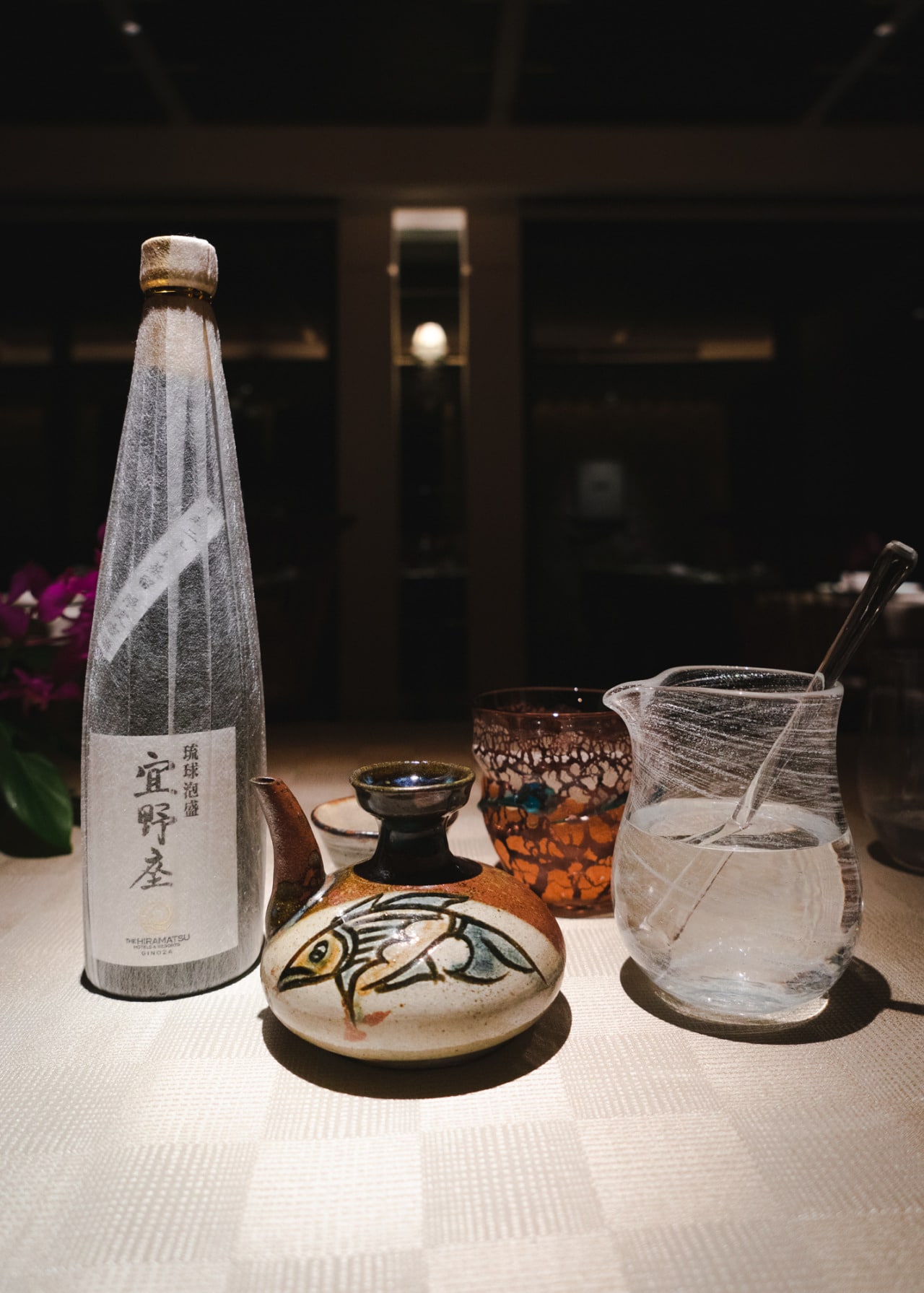#gallery-1 {
margin: auto;
}
#gallery-1 .gallery-item {
float: left;
margin-top: 10px;
text-align: center;
width: 100%;
}
#gallery-1 img {
border: 2px solid #cfcfcf;
}
#gallery-1 .gallery-caption {
margin-left: 0;
}
/* see gallery_shortcode() in wp-includes/media.php */
FOOD: Awamori
Known locally as shima-zake or ‘island sake’, awamori is a distilled rice liquor unique to Okinawa, Japan’s sub-tropical archipelago. Inspired by the Thai drink Lao Khao, awamori has its roots in Okinawa’s trading history, using ingredients and techniques introduced to the islands by Thai merchants in the 15th century.
Like its much-loved cousin, awamori is made using rice, though whilst sake is brewed, island sake is distilled, using recipes and methods refined over centuries. Made in a single fermentation using long-grain Thai-style rice and Okinawa’s indigenous black koji mould, awamori is traditionally aged in clay pots, thrown using local earth. Today, distillers use wooden casks and stainless steel barrels to help alter the flavour, leaving the liquor to steep anything from a few months to several years.
More like whisky than wine, awamori is usually served with a carafe of water and bucket of ice, though some prefer it straight-up, and it makes the ideal base for an island cocktail.

